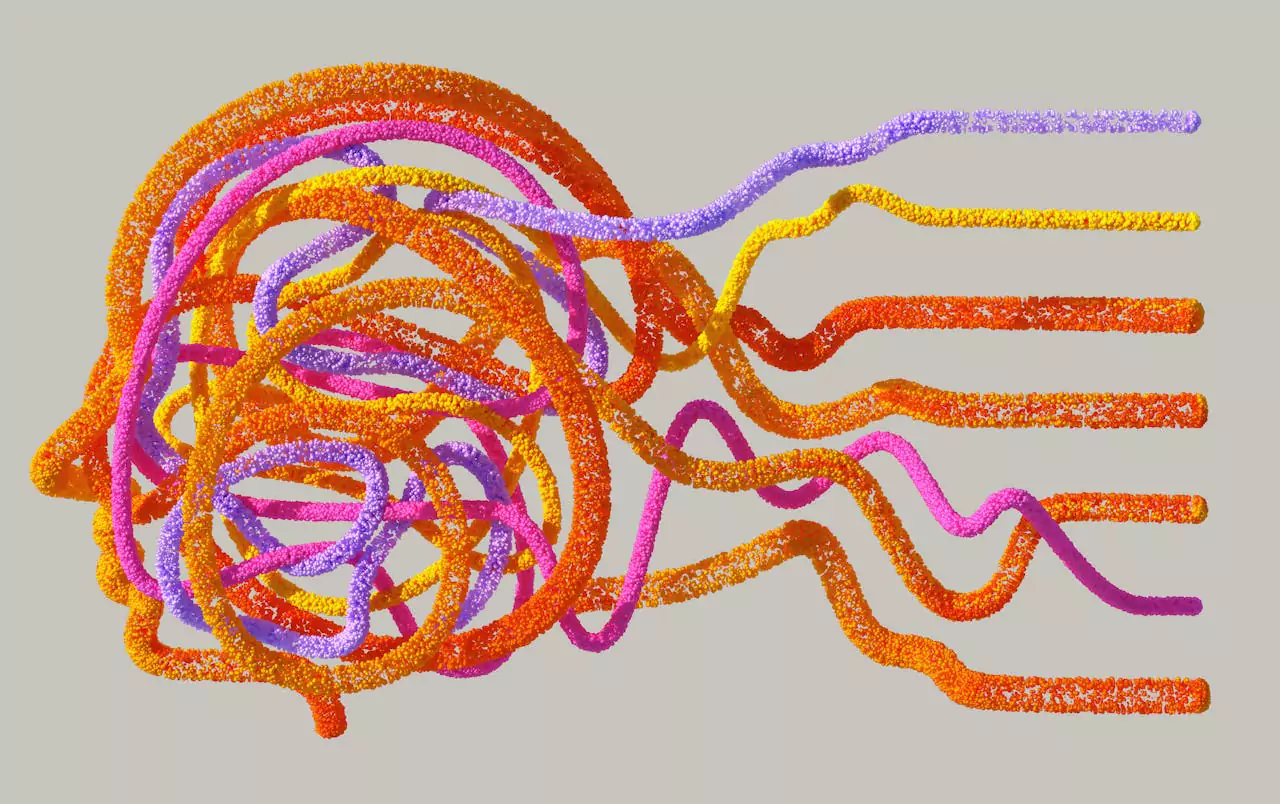Let me guess. You opened your phone to check one little thing—maybe an email or a text—and somehow woke up 45 minutes later deep in a TikTok rabbit hole watching “how to escape quicksand” tutorials. Relatable? You’re not alone. Social media has a sneaky way of pulling us in and leaving us mentally fried. You might laugh at the term “brain rot,“ but admit it—it perfectly describes that foggy, scatterbrained feeling after a binge-scroll session.
The thing is, social media isn’t inherently bad. It’s how we stay connected, laugh at memes, and even find the latest trending AI article (hi there!). But when the balance tips, it can quietly mess with your ability to focus, think deeply, or even enjoy life offline. So, let’s chat about this “brain rot,” how social media contributes to it, and how you can reclaim your focus without going full digital detox.
What Is ‘Brain Rot,’ and Why Is Social Media to Blame?
“Brain rot” isn’t a scientific diagnosis, but it’s a pretty spot-on way to describe the mental mushiness that happens after too much screen time. Think of it like junk food for your mind: social media offers endless snacks of dopamine but no real nutrition.
Here’s the recipe:
- Dopamine Overload: Every like, comment, or follow triggers a mini dopamine hit—the brain’s reward system lighting up like a Christmas tree. Over time, your brain gets hooked, craving those micro-rewards more than real-world experiences.
- Attention Fragmentation: Social media’s quick-scroll format trains your brain to hop from one thing to another without diving deep. It’s like swapping novels for tweets—you might consume more, but retain less.
- Information Overload: Between breaking news, dance challenges, and “5 tips for productivity” posts (oh, the irony), your brain gets overwhelmed trying to process everything at once.
7 Signs Social Media Is Wrecking Your Focus
Let’s cut to the chase: is your brain crying for help? Here are seven surefire signs that social media might be messing with your mental clarity:
1. You Can’t Focus on a Single Task
Does this sound familiar? You open your laptop to finish a work report but think, “Let me check Instagram real quick.” An hour later, the report’s untouched, but you know what your college roommate’s dog ate for breakfast.
Social media shortens your attention span, making it feel impossible to focus on one thing for too long. Your brain starts craving quick distractions instead of settling into deep work.
If you can’t make it through one Netflix episode without checking your phone, social media might be training your brain to multitask itself into oblivion.
2. Your Memory Feels Like a Leaky Bucket
Ever read something important and forget it minutes later? That’s your brain on social media. Jumping from post to post makes it harder for your mind to process and store information.
Studies show that social media overstimulation impacts the hippocampus (the brain’s memory HQ), leaving you struggling to retain even simple details.
Real-Life Example: You watch a reel on how to fold a fitted sheet. Genius! Except two days later, you’re back to balling it up and shoving it in the closet.
3. You’re Constantly Multitasking (Badly)
You’re watching a YouTube tutorial, replying to a group chat, and liking your cousin’s vacation pics all at once—and yet, none of it feels satisfying. That’s because humans aren’t built to multitask well.
Social media fosters this juggling act, training your brain to dart between tasks without ever fully committing to one. Spoiler alert: you’re not actually “killing it.”
4. You Feel Mentally Drained for No Reason
Ever log off after a scrolling session and feel inexplicably tired, even though you’ve been sitting the whole time? That’s not just you. Processing an endless stream of content takes a toll, leaving your brain exhausted.
Your brain isn’t wired for this much stimulation. Decision fatigue sets in after scrolling through dozens of posts, making even simple choices (like dinner) feel Herculean.
5. Your Attention Span Could Rival a Goldfish
Can’t get through a movie or book without sneaking a peek at your notifications? You’re not alone. Studies suggest our attention span has shrunk to about 8 seconds—shorter than a goldfish. Thanks, social media!
Example: You start reading this article but pause halfway to check Twitter. (Caught you, didn’t I?)
6. You’re Feeling More Anxious or Restless
Social media thrives on FOMO, outrage, and comparison—all things that ramp up anxiety. Constant notifications and doomscrolling can leave you feeling on edge, even when there’s no immediate reason.
If reaching for your phone feels more like a reflex than a choice, it’s time to rethink your relationship with your apps.
7. You’re Losing Interest in the Real World
When was the last time you fully enjoyed a moment without thinking, “Should I post this?” If scrolling feels more appealing than spending time with friends, pursuing hobbies, or even just sitting with your thoughts, social media might be numbing your offline joy.
Real-Life Example: You’re at a concert but spend half the time filming stories. By the end, you realize you didn’t actually enjoy the music.
Read More On: How Can Daydreaming Help with Problem Solving?
How to Reclaim Your Focus and Beat ‘Brain Rot’
The good news? You don’t need to delete Instagram or throw your phone into a lake to get your brain back in gear. With a few intentional changes, you can break the cycle and regain control.
1. Set Screen Time Boundaries
- Use App Timers: Apps like Screen Time (iOS) and Digital Wellbeing (Android) let you set daily time limits. Start with something realistic—say, 1-2 hours per day.
- Designate No-Phone Zones: Keep your phone out of reach during meals, in the bedroom, or while working. Out of sight, out of mind!
Charge your phone in another room overnight. A real alarm clock works just fine.
2. Start the Day Phone-Free
Avoid checking social media for at least 30 minutes after waking up. Use that time to stretch, journal, or sip your coffee like a sane person.
Why It Works: Starting the day grounded helps you resist the urge to dive headfirst into the chaos of notifications.
3. Take a Social Media Detox (Even a Mini One)
Even a short break—like a weekend without apps—can reset your habits. Use the time to reconnect with hobbies, family, or even gasp boredom.
4. Replace Scrolling with Mindful Activities
Filling the social media void with something meaningful can make all the difference. Try:
- Reading: Rediscover the joy of long-form content.
- Exercise: Physical activity clears your mind and boosts mood.
- Meditation: Apps like Calm or Insight Timer can help you stay present.
5. Turn Off Notifications
Let’s be real: you don’t need to know the second someone likes your post. Turn off non-essential notifications to reduce the temptation of constant checking.
6. Use Social Media Intentionally
Instead of aimlessly scrolling, set specific goals for your social media use. Maybe you’re looking for recipes, catching up with friends, or finding workout inspiration. Stick to that purpose and log off when you’re done.
7. Reconnect with Offline Passions
Remember hobbies? The things you used to love before social media took over? Whether it’s painting, hiking, or baking, rediscovering those activities can bring balance and joy back into your life.
When to Seek Professional Help
If you’re struggling to manage your social media use or it’s significantly affecting your mental health, consider reaching out to a therapist. They can help you navigate digital dependency and build healthier habits.
The Bottom Line
Social media isn’t evil—it’s how we use it that matters. If you’re noticing signs of “brain rot”—like trouble focusing, constant restlessness, or disinterest in offline life—it’s time to hit pause and reassess. By setting boundaries, being mindful, and prioritizing real-world connections, you can reclaim your focus and give your brain the breathing room it deserves.
So next time you’re tempted to dive into an endless scroll, ask yourself: Is this adding value, or just noise? Your brain will thank you later.




